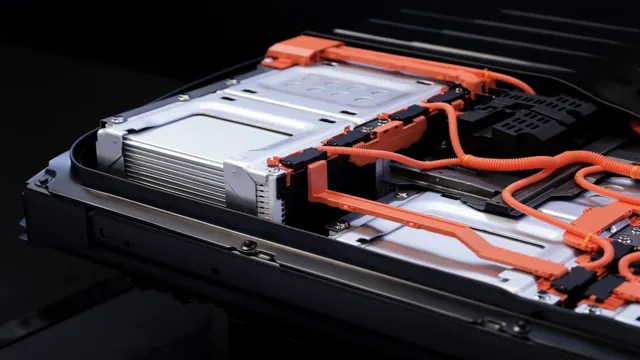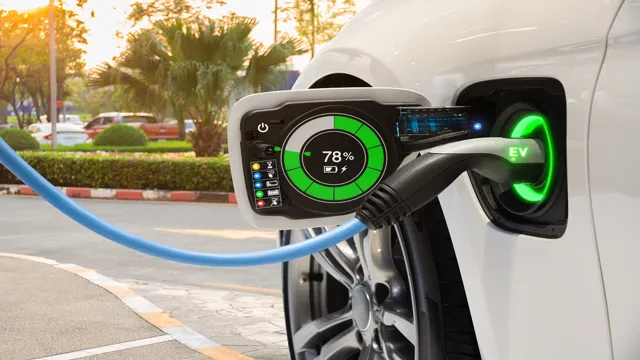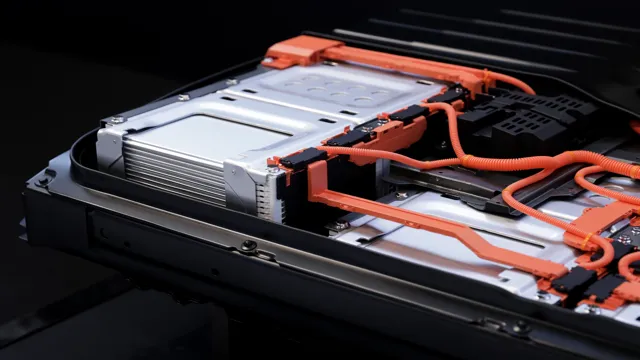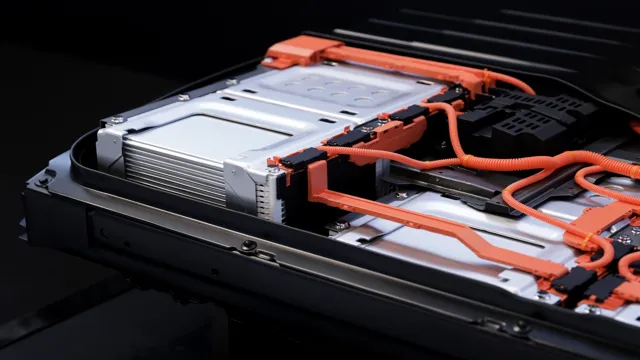Electric Car Battery Dilemma: Debunking the Myth on Environmental Harm
Electric car batteries have been a hot topic in the automotive industry for quite some time now. Some people praise their efficiency and environmental friendliness, while others worry about their safety and potential harm to the environment. But what’s the real deal? Are electric car batteries friend or foe? Let’s dive into the world of electric cars and learn more about the batteries that power them.
On one hand, electric car batteries are undoubtedly an excellent alternative to traditional fossil fuel-powered vehicles. They have a lower carbon footprint, produce zero emissions, and are much quieter. Furthermore, they are incredibly efficient and can last for many years with proper care.
In a world where pollution and climate change are serious problems, electric car batteries seem like a panacea. On the other hand, there are concerns about the safety and environmental impact of electric car batteries. Some studies have shown that the production of these batteries results in a high level of carbon emissions.
Additionally, the disposal of spent batteries can be a significant problem, as they contain potentially hazardous materials such as lithium and cobalt. So, are electric car batteries friend or foe? It’s hard to say for sure. While they offer many benefits, there are also some drawbacks that need to be addressed.
However, one thing is clear: electric cars are the future, and their batteries will play a vital role in shaping that future. Whether they are friend or foe will depend on how we choose to use and manage them in the years to come.
Environmental Impact of Battery Production
As electric cars gain popularity, many are concerned about the environmental impact of battery production. While electric cars themselves produce less emissions than gas-powered cars, the production of their batteries requires significant resources. The process involves mining for materials such as lithium and cobalt, which can have devastating effects on local ecosystems.
Additionally, the manufacturing process for batteries requires large amounts of energy and creates greenhouse gas emissions. However, as the demand for electric cars increases, manufacturers are exploring more sustainable options such as recycling and using alternative materials. So, do electric car batteries harm the environment? The answer is yes, but manufacturers are making efforts to reduce their impact and create a more sustainable future.
Carbon Footprint of Battery Manufacturing
When we think about the environmental impact of electric vehicles (EVs), we often focus on their zero-emissions performance on the road. However, there is another side to the equation that we must consider: the carbon footprint of battery manufacturing. The production process of EV batteries requires a significant amount of energy and resources, which lead to high greenhouse gas emissions and other environmental impacts.
According to a study by the European Commission, the production of an EV battery emits between 56% and 86% more CO2 than a conventional car battery due to the manufacturing processes involved. This means that we need to work on developing sustainable and low-carbon methods for battery production if we want to make EVs truly eco-friendly. The good news is, many companies are already investing in research for sustainable battery production methods and exploring ways to reduce environmental harm from battery production.
We need to prioritize this aspect of EV development if we want to create a greener future.
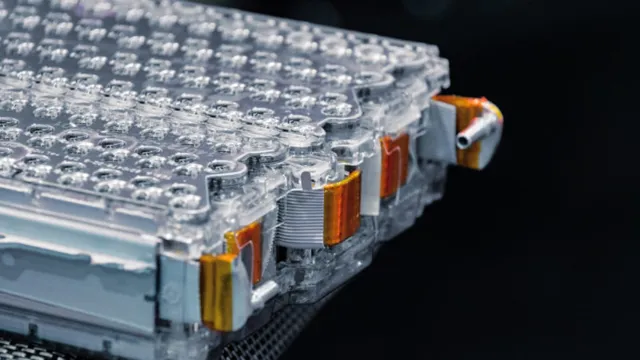
Mining and Extraction of Raw Materials
The production of batteries has a significant impact on the environment due to the extraction and use of raw materials. The mining of minerals such as lithium, cobalt, and nickel for battery production can have disastrous consequences for local ecosystems. The waste generated from mining, such as tailings and chemical runoff, can contaminate water sources and disrupt ecosystems.
Additionally, the production process itself consumes large amounts of energy and emits greenhouse gases into the atmosphere. While advancements in technology have led to more sustainable extraction methods and increased use of renewable energy sources in production processes, the demand for batteries continues to grow with the rise of electric vehicles and renewable energy storage systems. As a result, it is crucial for companies to prioritize sustainable practices and for consumers to consider the environmental impact of their energy usage and purchasing decisions.
By choosing products produced with sustainable methods and properly disposing of used batteries, we can work towards a more environmentally conscious future.
Lifecycle Analysis of Electric Car Batteries
As electric vehicles become a more popular mode of transportation, questions have risen about the environmental impact of their batteries. While electric car batteries are more eco-friendly during operation than gasoline-powered vehicles, there is still concern about their manufacturing and disposal. A lifecycle analysis of electric car batteries shows that the production of lithium-ion batteries can produce considerable emissions and require significant amounts of water and raw materials.
Additionally, the disposal of these batteries may pose a risk to the environment if not properly handled. However, the benefits of electric car batteries in reducing greenhouse gas emissions and air pollution outweigh these potential negative impacts. With increasing focus on sustainable manufacturing and recycling practices, the environmental impact of electric car batteries can be minimized in the future.
So, do electric car batteries harm the environment? The answer is not a simple yes or no, but rather a consideration of the benefits and impacts throughout their lifecycle.
Longevity of Electric Car Batteries
Electric Car Batteries As the popularity of electric cars continues to grow, many are curious about the lifespan of their batteries. A lifecycle analysis of electric car batteries shows that they can last for many years, even up to a decade or more, with proper maintenance. Factors that can affect the lifespan of electric car batteries include temperature, usage patterns, and charging habits.
For example, extreme temperatures can negatively impact the battery, so it’s important to avoid leaving an electric car parked in direct sunlight on hot days. Additionally, charging the battery frequently to full capacity can reduce its lifespan, so it’s recommended to keep the battery charged between 20% and 80% whenever possible. Overall, as technology continues to advance, we can expect the longevity of electric car batteries to continue to improve in the years to come.
Disposal of Used Batteries
Electric car batteries have a significant impact on the environment throughout their lifecycle. From manufacturing to disposal, the production of these batteries requires considerable energy consumption and generates greenhouse gas emissions. Lifecycle analysis helps track the environmental impact of electric car batteries from cradle to grave.
Disposal of used batteries can be a cause for concern as they can contain toxic materials and pose a potential hazard to the environment. It’s essential to recycle these batteries and extract valuable materials like cobalt, nickel, and lithium. When recycled correctly, we can reduce our reliance on mining for these materials, which is a significant source of environmental damage.
Recycling used batteries not only reduces the environmental impact of electric cars but also creates economic opportunities in the renewable energy sector. Let’s all play our part in reducing our carbon footprint by ensuring that we dispose of used electric car batteries appropriately.
Recycling and Second Life Uses for Batteries
Lifecycle Analysis of Electric Car Batteries Electric car batteries are an essential part of the vehicle and although it is designed to last for several years, it will eventually reach the end of its lifespan. However, did you know that electric car batteries can still be useful even after they are no longer powerful enough to run a car? One way to utilize old batteries is through recycling. Recycling is the process of breaking down old batteries into their component materials like cobalt, nickel, and lithium, which can then be used to manufacture new batteries or other products.
When recycled, electric car batteries have the potential to significantly reduce the environmental impact of manufacturing new batteries. Another promising option is to give old batteries a second life. They can be used as backup power for homes, communities, or small businesses.
This prolongs the battery’s lifespan, reduces the need for new batteries and thus further decreases the environmental impact of production. The recycling and second life use of electric car batteries poses a win-win situation that leads to a cleaner and more sustainable world.
Comparing Electric Car Batteries to Traditional Cars
Many people wonder if electric car batteries harm the environment more than traditional car batteries. While it’s true that electric car batteries do come with environmental impacts, the overall impact is significantly less than that of traditional car batteries. Traditional car batteries are made with lead, which is a toxic material that can pollute soil and groundwater.
When these batteries are disposed of improperly, the lead can leach into the environment, causing harm to both animals and humans. In contrast, electric car batteries are made with materials that can be recycled. Additionally, the amount of energy used to produce an electric car battery is significantly less than that of a traditional car battery.
Finally, electric car batteries can power a vehicle for a longer time period, reducing the need for frequent replacements. All of these factors combined result in a significantly lower environmental impact from electric car batteries. So, to answer the question – no, electric car batteries don’t harm the environment more than traditional car batteries.
In fact, they’re a much more environmentally-friendly option overall.
Emissions from Gasoline Cars
Emissions from gasoline cars have been a growing concern as we look for ways to reduce our carbon footprint and combat global warming. One of the solutions being considered is the use of electric cars. But how do electric car batteries compare to traditional cars in terms of emissions? It turns out that electric cars emit significantly less CO2 than gasoline cars, even when taking into account the emissions generated by producing the electricity used to charge the batteries.
This is because the majority of electricity production in the US comes from natural gas and renewable sources, which emit fewer greenhouse gases than burning gasoline. Additionally, advancements in battery technology and energy storage mean that electric cars are becoming more efficient and have longer ranges. While electric cars may have a higher upfront cost, their long-term savings in fuel and maintenance costs make them a worthwhile investment.
So, if you’re looking for a car that’s better for the environment and your wallet, an electric car battery might just be the way to go.
Overall Environmental Impact Comparison
When comparing the overall environmental impact of electric car batteries to traditional cars, there are several factors to consider. One of the main advantages of electric cars is that they produce zero emissions when driven, reducing air pollution and its negative impact on human health. However, the manufacturing process for these batteries uses significant amounts of energy and resources, which can contribute to environmental damage.
On the other hand, traditional cars emit greenhouse gases while being driven, contributing to climate change and air pollution. The production process for traditional cars also requires a significant amount of energy and resources, but in different ways compared to electric cars. Overall, it’s important to weigh the pros and cons of both types of vehicles to determine which is the most environmentally-friendly option.
Conclusion: The Environmental Impact of Electric Car Batteries
In conclusion, it’s not so much the batteries themselves that harm the environment, but rather the way they are produced and disposed of. While electric cars may not emit harmful gases, the production of their batteries can contribute to carbon emissions and the disposal of used batteries can potentially lead to toxic waste. However, as technology and societal norms continue to evolve, we have the opportunity to develop cleaner and more sustainable methods for electromobility.
So don’t just recharge your car, recharge your optimism for a greener future!”
FAQs
How are electric car batteries disposed of?
Electric car batteries are recycled. The materials such as lithium, cobalt, and nickel are extracted and reused in new batteries or for other products.
Do electric car batteries emit any harmful gases?
Electric car batteries do not emit any harmful gases during operation. However, the production of the batteries can result in emissions depending on the source of electricity used.
How do electric car batteries compare to traditional car batteries in terms of environmental impact?
Electric car batteries have a lower environmental impact than traditional car batteries as they produce fewer emissions during operation and are recyclable.
Are there any alternative battery technologies being developed for electric cars?
Yes, researchers are exploring alternative battery technologies such as solid-state batteries and flow batteries that have the potential to offer higher efficiency and lower environmental impact.
